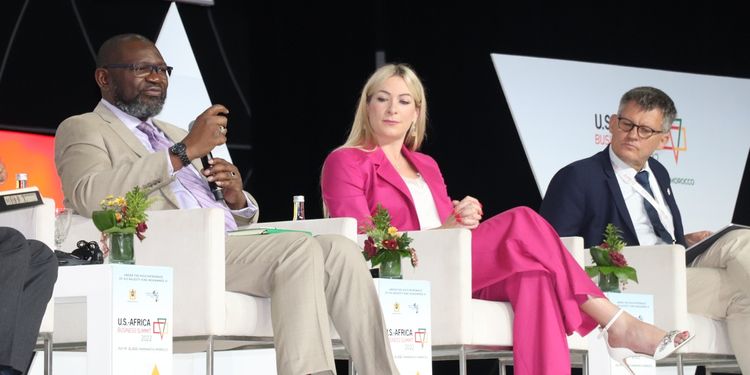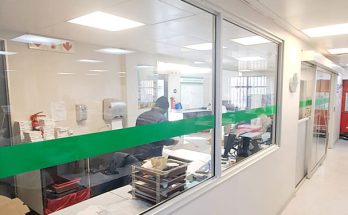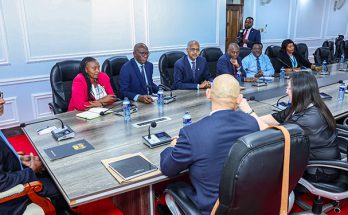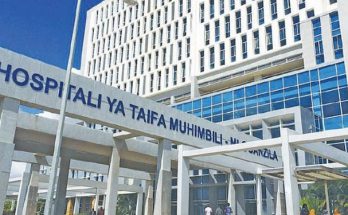 Africa’s health systems were creaking even before the covid-19 pandemic and the cause was the continent’s low capacity in the manufacturing of medicine locally, the delays in shipping drugs to the continent, and after months of waiting, the high costs especially to customers outside of urban areas.
Africa’s health systems were creaking even before the covid-19 pandemic and the cause was the continent’s low capacity in the manufacturing of medicine locally, the delays in shipping drugs to the continent, and after months of waiting, the high costs especially to customers outside of urban areas.
But during a plenary on Africa’s health supply chains at the US-Africa Business Summit in Morocco, health experts called on big pharma to direct their investments to Africa and manufacture on the continent.
The pandemic highlighted issues in Africa’s health systems
Acting director of the Africa Centers for Disease Control (CDC) Ahmed Ouma said there’s an existing body of knowledge on traditional medicine in Africa which the US and other foreign investors can tap into and set up manufacturing plants in the continent. “Come and manufacture from here. We will support you,” said Ouma.
Getting the reagents for genome sequencing covid-19 and other diseases from within the continent has been a challenge, and most labs lack the capacity to manufacture medicine forcing the continent to import up to 90% of its drugs as at 2019.
Ouma stressed how, despite Africa’s huge opportunities, its health sector is still plagued by roadblocks in getting cold chain medical equipment, the appropriateness of the equipment in terms of power and movement and lack of personnel to use that equipment. The medical equipment market in the continent is projected to hit $7 billion by 2027.
Challenges in accessing capital in the African health sector and the snags of developing a sustainable financing strategy were identified as other critical reasons why Africa is unable to produce its own drugs.
Kwabena Ayirebi, director of banking operations at Afreximbank said financial institutions have to work closely with donors and their communities and structure more sustainable and sustainable funding models.
“African countries must push towards local production on the continent by integrating the various elements in terms of logistics and supply chains,” Ayirebi said.
Vice president of public affairs for UPS in the Indian subcontinent, Middle East and Africa Christina Struller highlighted that for the smooth functioning of supply chains, big pharma must organize itself and prepare better to accelerate, improve and enhance the provision of vaccines to people who need them. “This passes through three essential elements, namely delivery technology, storage throughout the cold chain and know-how.”
Alain Barry, north and west Africa external affairs director at American multinational pharmaceutical company MSD called for the forging of public-private partnerships to address Africa’s systemic hurdles in advancing its supply chains.
“Private sector investments into universal health coverage will have the most impact but only when supported by regulatory systems that set ethical frameworks, ensure the quality of products and services, and accelerate access and recognize the value of these products,” Barry said.
Africa has been working to strengthen health systems during the pandemic
Since the start of the pandemic, Africa has established the African Medical Supply Platform, and the Africa Vaccine Acquisition Task Team and the African Pharmaceutical Technology Foundation that are tasked with helping the continent’s lack of self-sufficiency in medicine, vaccine and equipment manufacturing but the continent is still 99% dependent on vaccine imports.
According to a 2019 Mckinsey study, Africa has only 375 drug makers for its 1.3 billion people compared to China and India, each with roughly 1.4 billion in population, which have 5,000 and 10,500 drug manufacturers, respectively. “Sub-Saharan Africa’s market value is still relatively small, at roughly $14 billion compared to roughly $120 billion overall in China and $19 billion in India.”
European drugmakers GlaxoSmithKline, Sanofi and Novartis have been investing in Africa to capture their share of the larger market.
Last month, Senegal received a fund of $80 million from the European Investment Bank, and will become the first African country to have a full-service vaccine plant when construction is complete, and produce up to 300 million vaccine doses each year for the continent. But that is still not enough for the continent’s drug needs.



